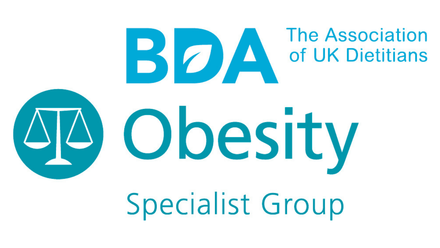In this blog, Dietitian Vanessa Osborne takes a look at the topic of obesity and the health complications that are connected to the disease.
The more we understand about how our body works and how this is affected in disease, the better our medical treatments become, and the more we can reduce stigma.
Cancer was once seen to be due to an imbalance of the ‘four humours’ that regulated bodily function. One of the treatments for this was bloodletting, which we believed rebalanced the humours by draining excess blood. Our awareness and understanding of mental wellbeing has led to a reduction in stigma towards people living with mental illness, though there is still some way to go with reducing stigma here.
Obesity has traditionally been seen as a character flaw; where one lacks sufficient willpower to eat less and move more, but our understanding has developed significantly around the interactions between adipose (fat) tissue, our brains and our gut, as well as other organs such as the pancreas. Obesity is a complex, chronic, relapsing disease where our body’s regulation of energy balance and appetite stops work properly.
The hypothalamus, a structure deep within the brain, triggers signals making you feel hungry or full. The strength and frequency of these signals is something you cannot control. Our metabolism varies too depending on age, gender, medications, hormones, and muscle mass. It accounts for 60-80% of our energy output. If you take a random group of people and feed them all the exact same amount of calories under controlled conditions, you would see a large difference in their ability to gain weight. We know genetics influences body weight by up to 70%. The balance of bacteria in your gut can also influence your body weight. Once you have gained weight, it becomes increasingly difficult to lose weight because your body tries to defend against any weight loss attempts by increasing your hunger and reducing your metabolism.
We know that levels of obesity are increasing. Take your genetics that makes you more susceptible to weight gain, combine that with an environment where not only higher calorie foods are more accessible, cheaper and tastier, but opportunities for physical activity have been reduced, and you have a situation where you are more likely to gain weight easily. Throw into the mix lack of sleep, high stress levels, high levels of mental health issues, and the rising cost of living, and you can start to understand not only why levels of obesity are increasing, but appreciate why it can be so difficult for people to lose weight. Our environment, biology, psychology, our culture and norms, all influence what we do; what we eat, drink and our levels of physical activity.
Those with other chronic diseases, such as heart disease, diabetes or even cancer, where lifestyle may play an important role in its development and treatment, are not the subject of bias. In people who smoke, we don’t deny them inhalers if they develop COPD. They are not expected to treat themselves, and if they don’t see improvements in their disease, are not seen as failures. Bias towards people with obesity leads to patients not accessing treatment or being advised ineffective treatment methods such as eat less and exercise more.
Conscious choice remains an important factor in treatment of obesity, but we need to start to recognise the role of biology in body weight and appreciate how all of these other factors makes obesity a complex, chronic disease that deserves medical treatment without judgement.




